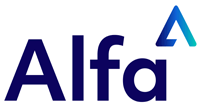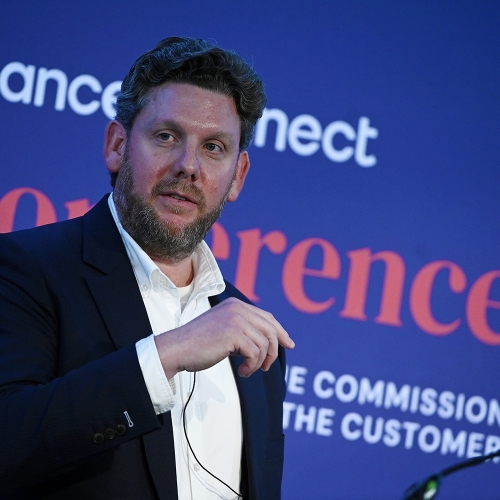Summary
At the AFC Winter Conference we took an initial look at funding options for new and established companies wanting to start or scale up their own portfolio of finance agreements.
Stephen Bassett was joined on the AFC panel by a selection of experts from the funding market, each occupying a somewhat different position in the value chain, so that they could help highlight some of the many different funding approaches and financing options available. Moderator Stephen Bassett opened the discussion by noting that there were more ways to do this than many realized.
Warren Mutch, Head of Speciality Finance at Shawbrook Bank confirmed, “there is a range of different institutions and different sources of funding available. Some will work for you, others may not work as well.”
Sandeep Kaundal, Debt Advisory Lead at T.Mistry & Associates Limited pointed out that “lending to the lenders” is itself a form of speciality finance.
“Providing funds to lenders is actually a multi-faceted market.”
A brief overview follows, of just some of the speciality finance options discussed at the Conference:
Wholesale and block discounting. Block discounting is seen by many as the first concrete step in the own book funding journey. Block discounting allows independent finance providers and lenders to release the capital they have tied up in existing agreements once they have been originated.
It is a relatively simple and secure revolving credit facility allowing lenders and providers to raise funds against their future rental income streams and then immediately reinvest in their company’s growth by providing additional finance agreements to new customers.
Warren Mutch heads up the wholesale and block discounting team at Shawbrook Bank, whose block discounting facilities enable companies to do exactly this, releasing capital from current live contracts without impacting on the agreements arranged with their own clients.
Invoice discounting. Amongst other facilities, invoice discounting is offered by Leumi ABL as a core part of their asset-based lending product range. Like block discounting, invoice discounting improves a company’s cashflow, with immediate cash availability linked to outstanding sales invoices, so the available funding grows as the business grows.
Medium-term note programme (MTN). Working on the capital markets side of the LGB business, panelist Fergus Rendall, Associate Director at LGB Capital Markets described how they arrange debt facilities styled medium-term note (MTN) programmes which can provide a more flexible type of funding, offering investors greater diversity and higher levels of security.
Fergus was joined by LGB’s founder and director, Andrew Boyle, and they gave a clear and concise explanation of these MTN programmes which enable lenders and providers to borrow from multiple investors quickly and efficiently, the funds from which might be utilized in order to fund growth, refinancing, acquisitions, wholesale requirements, or just working capital.
Boyle concluded that, “LGB’s medium-term notes are perfect for companies who want to borrow incremental amounts, and for investors who want to have a regular source of notes at par that provide them with income. LGB have often been able to successfully put these two parties together.”
British Business Bank – ENABLE programmes. To support lenders such as smaller banks and non-bank financial institutions and unlock more lending to smaller businesses, the British Business Bank (BBB) launched the ENABLE Guarantee and the ENABLE Funding programmes.
Designed to encourage additional lending to smaller businesses, the ENABLE Guarantee programme incentivises participating institutions by providing a government-backed portfolio guarantee, to cover a portion of a designated lending portfolio’s net credit losses in excess of an agreed ‘first loss’ threshold, which they receive in exchange for a fee.
In November 2014, the BBB launched a new programme, ENABLE Funding, aimed at improving the provision of asset and lease finance to smaller UK businesses.
Providers of finance to smaller businesses often lack the scale required to access capital markets – a key source of funding for lending institutions – in a cost-efficient manner.
ENABLE Funding warehouses newly-originated finance receivables from different originators – bringing them together into a new structure. Once the structure has sufficient scale, it will refinance a portion of its funding on the capital markets. This means the British Business Bank can help small finance providers to tap institutional investors’ funds.
According to Shire Leasing’s CEO Mark Picken, the ENABLE Funding programme is like the “big brother of the BBB’s match funding facility,” and allows businesses like Shire Leasing to become engaged in securitization transactions.
Case study: Shire Leasing’s funding journey
Since its inception in 1990, as a non-bank lender, Shire Leasing has needed to create cash flow to fund agreements and growth. At the time, block discounting was limited with a “glass ceiling” of around £10m. Picken notes that, “If you were a cynic, you might say that block discounting is designed to keep the small man small, because you can only borrow just enough to make your way reasonably easy.”
After the credit crunch, the government-owned British Business Bank (BBB) was formed to look at many markets including block discounting. “The BBB’s plan was to try to smooth the way for people to get access to block discounting type facilities without the £10m limit,” according to Picken.
The BBB set up a match funding facility which changed the £10m ceiling of block discounting. Shire Leasing entered the match funding facility and received investment from the BBB’s commercial arm – British Business Bank Investments Ltd – in late 2014, matching Shire Leasing’s private funders and investing an additional £40 million block line funding into Shire Leasing.
The BBB then launched another product called ENABLE, allowing businesses like Shire Leasing to get into the realms of being able to securitize. Shire Leasing joined the ENABLE funding programme enabling the business to access wholesale funds at a reasonable price as well as diversifying their funder base.
In 2017, the BBB agreed a £37.4m ENABLE Funding Facility with Shire Leasing to boost asset finance for smaller businesses. (See https://www.shireleasing.co.uk/british-business-bank-agrees-new-37.4m-enable-funding-facility/). In 2020, the BBB agreed a further £62.4m ENABLE Funding Facility.
In 2022, Shire Leasing further strengthened their funding position with a £15 million secured medium-term note (MTN) arrangement with LGB Capital Markets. The programme will provide funding and enable further investment in Shire’s business platforms, operations, own book, and other opportunities as they arise. (See https://www.shireleasing.co.uk/lgb-capital-markets-advises-shire-leasing-on-15-million-mtn-programme/)
Shire Leasing is always on the look-out for its next funding facility, according to Picken: “If you wish to grow, you always need to look for the next appropriate type of facility.”
Along their funding journey, Shire Leasing has been happy with all its chosen funding sources with good relationships created along the way. Mark Picken highlights that, “the only way you can borrow money on any scale from someone who wants to lend it is to be transparent to encourage trust.”
Case study: LGB Capital Markets
LGB Capital Markets is a capital markets and investment firm providing two services: (i) capital raising for corporates; and (ii) offering investment opportunities to investors.
LGB Capital Markets provides capital raising advice and structures medium-term debt financing programmes to support the growth of their corporate clients.
LGB looks at the whole ecosystem from early-stage to large institutions: “Early-stage businesses approach LGB looking for senior, more developed funders come to us looking for more flexible facilities, potentially mezzanine capital, and even large institutions come to us looking for more working capital type facilities or mezzanine type facilities, potentially for things like acquisitions.”
One of LGB’s products is the medium-term note (MTN) programme which is more flexible than block discounting. A £15 million secured MTN programme was arranged for Shire Leasing in 2022, with the programme providing funding to Shire’s senior wholesale funders to enable the company to further invest in its business platforms, operations, own book, and other opportunities as they arise.
Shire Leasing’s Mark Picken was particularly impressed with LGB as the capital could be used for different options (with LGB’s approval), for example writing agreements, cash flow and acquisitions, unlike most other funding products which are restricted to simply writing agreements.
Advice for somebody looking to scale up or start their finance portfolio
From their different perspectives around the funding path, the panelists ended the conference session by offering their advice to anybody looking to scale up or start their own finance portfolio. The main thrust of this, according to all the panelists, was that to establish a strong and effective relationship with a lender, there must be complete transparency in order to ensure that there is mutual trust between parties.
Shawbrook Bank’s Mutch added that, from a risk perspective, he would much rather be supporting a customer already known to the bank, who has been onboarded and is performing well under a recognized growth strategy.
Other points raised included:
- Stick to the basics and be transparent.
- Get to understand the different funding processes and products that are available.
- All your internal policies, procedures and systems all need to be set up, published and ready to go before further investment can be expected.
- Make sure you have the right set of skills within your organization in order to manage the funding journey you’re about to embark on.
- Know exactly where you are and what you want to achieve, create a thorough business and financial plan for growth.
- If you are unsure, go to a consultant or advisor for further advice and clarification.
T.Mistry & Associates’ Kaundal reinforced that, “the funders need to be more convinced in every way possible that they can trust you and they can grow with you.”
Whether advising the borrower or the lender, Kaundal believes that a consultant can make the process simple and unlock the best liquidity option for their client, helping them to answer three important questions: (i) how can I grow my business? (ii) how can I make sure I’m getting the best deal? and (iii) how can I protect my business and align it for future recovery?




